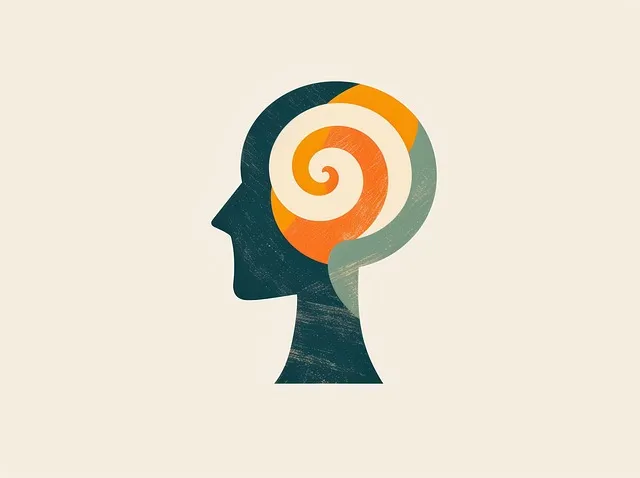Kaiser Permanente mental health centers prioritize superior cultural sensitivity in their care, addressing complex challenges like implicit biases and communication gaps through continuous education and training. They offer multilingual resources, cultural education, and specialized programs tailored to diverse communities, promoting personalized support and positive mental health outcomes for all patients. This commitment ensures culturally competent care that reflects the unique psychological and social contexts of each individual, setting a high standard for Kaiser Permanente mental health center excellence.
In today’s diverse society, cultural sensitivity is paramount in mental healthcare. The article explores how the Kaiser Permanente mental health center prioritizes culturally competent care. We delve into understanding cultural diversity and its impact on mental health services, addressing challenges and barriers that hinder effective treatment. Best practices from the Kaiser Permanente model are showcased, highlighting strategies for inclusive care. Additionally, we discuss measuring and enhancing cultural sensitivity to ensure superior patient outcomes across diverse backgrounds.
- Understanding Cultural Diversity in Mental Healthcare
- Challenges and Barriers to Cultural Sensitivity
- Best Practices for Culturally Competent Care at Kaiser Permanente Mental Health Center
- Measuring and Enhancing Cultural Sensitivity in Practice
Understanding Cultural Diversity in Mental Healthcare

In today’s diverse society, mental healthcare providers at superior institutions like Kaiser Permanente mental health centers must embrace cultural sensitivity as a cornerstone of patient care. Understanding and appreciating cultural diversity goes beyond recognizing various ethnic backgrounds; it involves comprehending the unique psychological and social contexts that shape individuals’ experiences with mental health issues. This includes recognizing how cultural beliefs, values, and practices influence coping mechanisms, expression of distress, and help-seeking behaviors.
At a Kaiser Permanente mental health center, for instance, clinicians can enhance their cultural sensitivity through continuous education on diverse communities’ specific challenges, such as acculturation stress or the impact of historical trauma. This knowledge equips them to offer tailored Trauma Support Services and Coping Skills Development programs that resonate with different cultural backgrounds. Moreover, leveraging resources like a Mental Wellness Podcast Series Production can foster inclusive practices by providing culturally relevant content accessible to a wide range of patients.
Challenges and Barriers to Cultural Sensitivity

In the realm of mental healthcare, fostering cultural sensitivity is a complex task, especially within prominent institutions like Kaiser Permanente mental health centers. The journey towards superiority in this area faces numerous challenges and barriers. One significant obstacle is the potential for implicit biases to influence practitioners’ approaches, leading to misjudgments and inappropriate treatment methods. These biases can stem from a lack of self-awareness exercises and mindfulness meditation practices among staff, hindering their ability to connect with patients from diverse backgrounds effectively.
Additionally, communication gaps arise from cultural differences in expression and understanding of mental wellness. Patients from various ethnic and socioeconomic groups may have distinct views on symptoms, trauma, and healing processes, which can create challenges in building trust and ensuring effective treatment. Overcoming these barriers requires continuous education, training, and a commitment to self-reflection among healthcare providers at superior Kaiser Permanente mental health centers, ultimately enhancing the quality of care for all patients.
Best Practices for Culturally Competent Care at Kaiser Permanente Mental Health Center

At Kaiser Permanente Mental Health Center, culturally competent care is a cornerstone of their superior services. They prioritize understanding and respecting patients’ diverse backgrounds, beliefs, and values, ensuring personalized mental health support that resonates with each individual’s unique identity. This approach involves proactive measures such as offering multilingual resources, cultural education for staff, and incorporating traditional healing practices where appropriate.
The center’s commitment to culturally sensitive care extends beyond language accessibility. They also provide specialized programs tailored to meet the specific needs of diverse communities, focusing on mental health awareness and emotional well-being promotion techniques. In times of crisis, their trained professionals deliver effective intervention guidance, considering cultural contexts to ensure supportive and culturally affirming responses.
Measuring and Enhancing Cultural Sensitivity in Practice

Measuring cultural sensitivity in mental healthcare involves a multifaceted approach. At the core, it’s about understanding and respecting diverse cultural beliefs, values, and practices that shape individuals’ experiences of mental illness and recovery. Organizations like Kaiser Permanente mental health centers strive for superior cultural sensitivity by integrating diversity training into their practitioner education and ongoing professional development. This includes learning about different cultural contexts, implicit biases, and the impact of systemic barriers on mental well-being.
Enhanced cultural sensitivity translates into improved patient care. Mental health professionals equipped with these skills can conduct thorough risk assessments tailored to each patient’s unique background, ensuring effective interventions. For instance, they might employ social skills training adapted for specific cultural needs or incorporate traditional healing practices when appropriate. By fostering a safe and understanding environment, mental healthcare providers not only prevent depression but also promote positive mental health outcomes among diverse populations.
Cultural sensitivity is an indispensable aspect of quality care, especially in diverse communities served by organizations like Kaiser Permanente. By addressing challenges and implementing best practices, as demonstrated at the Kaiser Permanente Mental Health Center, we can significantly enhance patient outcomes. Measuring cultural sensitivity through feedback mechanisms enables continuous improvement, ensuring a superior level of care that respects and values every individual’s unique background. This approach not only fosters trust but also encourages open dialogue, ultimately promoting mental well-being across diverse cultures.






